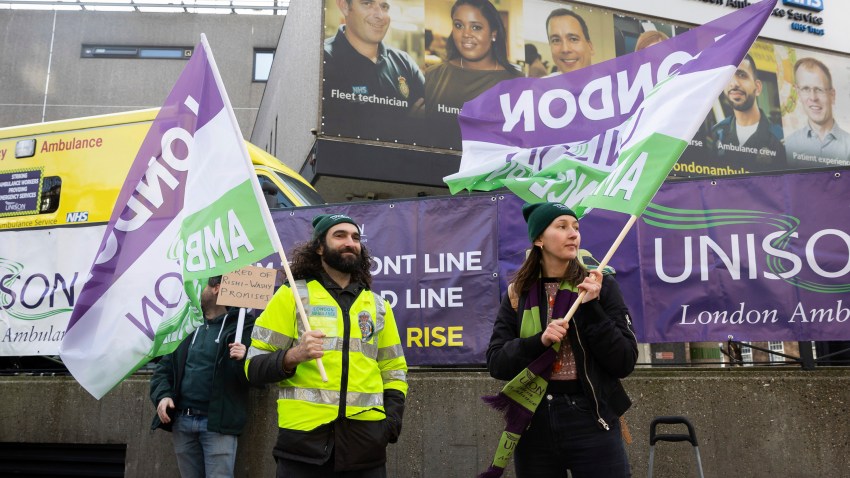This month, the U.K. is set to experience work stoppages across almost every public service. Rail workers, teachers and nurses are among the hundreds of thousands of union workers who have announced that they will go on strike, with industrial actions scheduled to take place on all but a few days in January.
Paul Nowak—the newly appointed general secretary of the Trade Unions Congress, a federation of almost 50 unions—has further warned of the possibility of a “rolling wave” of industrial action throughout 2023. This would see trade unions coordinating the timing of strikes to cause maximum disruption unless the Conservative government of Prime Minister Rishi Sunak engages in “serious and sensible discussions about pay.”
Until recently, public support for those on strike—especially health workers—has remained high. A YouGov Poll taken in mid-December, for example, found that two-thirds of the British public supported the first-ever National Health Service nurses’ strike. With strikes affecting more and more facets of daily life in the U.K., however, patience is likely to start wearing thin.

